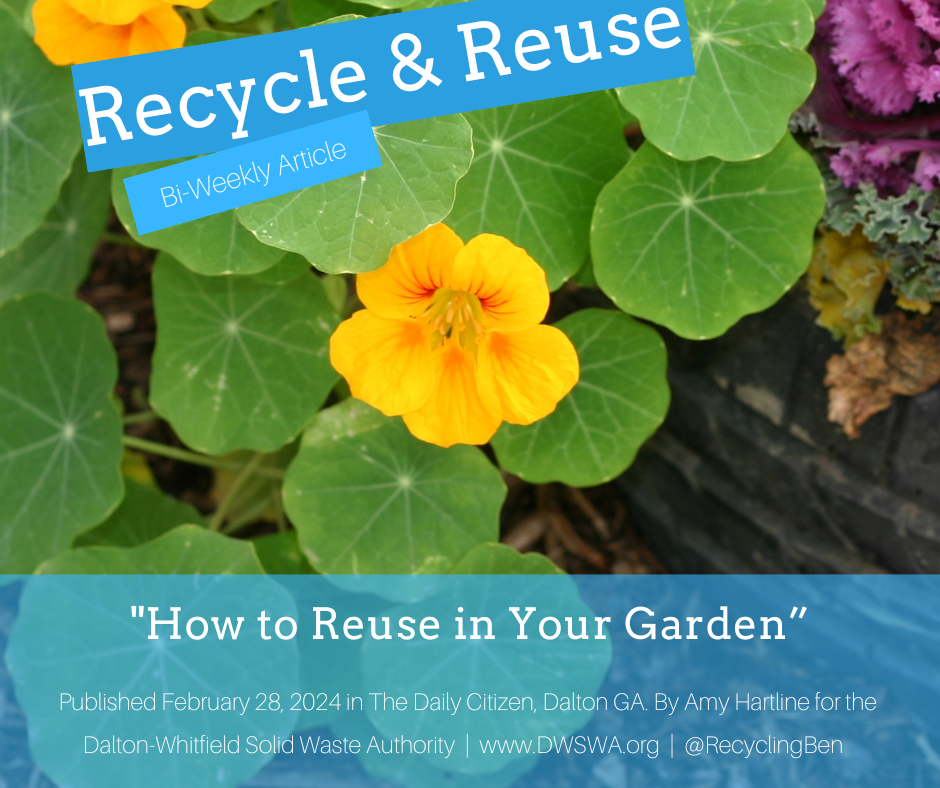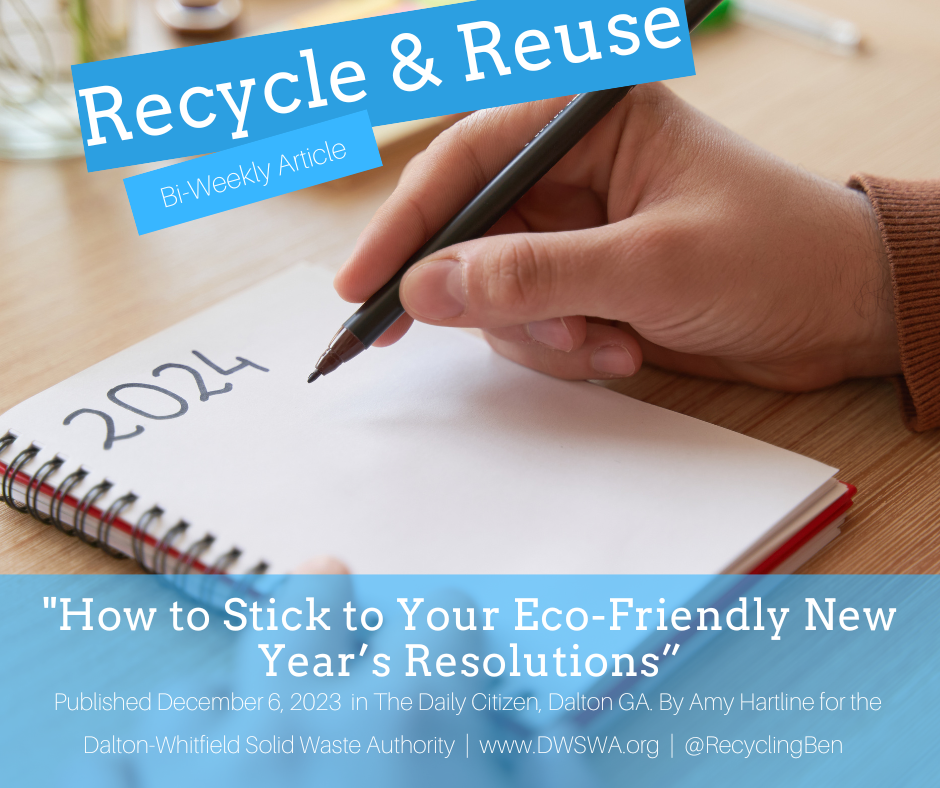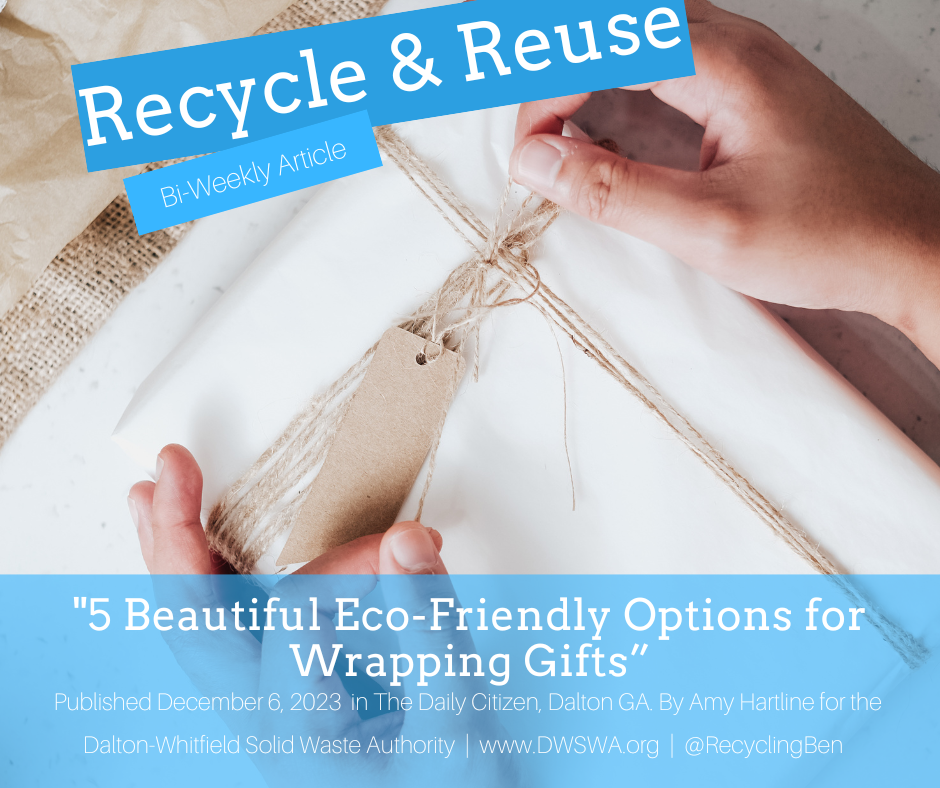Can We Live Litter Free?
/This glass bottle tossed out of a car window could have been recycled.
Is it really possible to see our streets free of litter? Last weekend I was part of a Keep Dalton-Whitfield Beautiful event downtown where I meet many people that want to live litter free and see others take pride in the community too. Actually, I know a lot of people like that. People that wouldn’t dare throw anything out of a car window – not even spent cigarette butts. Even parents that would scold their children for leaving trash behind at the park or on school grounds.
Litter is trash in the wrong place. That crinkled up wrapper on the sidewalk, the drink cup with no lid stuck in a storm drain, and the rain soaked paper bag from a fast food joint really should be in a trash can. Once trash is loose and out in the open, it’s very difficult to clean it all up. While it may be out of sight out of mind for the individual who put the trash there – it’s still there long after it’s forgotten by the owner.
Take a cigarette butt, for example, several studies estimate that it could be outside slowly decomposing for one to five years. When litter is exposed to the elements, such as rain and sunlight, it begins to decompose or biodegrade. Depending on the type of material it’s made of it can be many years before it completely decomposes - if at all. A lost leather work glove, for example, could be outside for 50 years before completely breaking down. A glass bottle, however, may take thousands of years to begin to show signs of wear.
If the trash is made of plastic, like a plastic bag, it will begin to photodegrade. The plastic bag will slowly break down into smaller and smaller pieces. Though it may not be visible from a distance, it’s still there and could be in the environment up to 20 years. A plastic bottle, on the other hand, can exist in the open for more than 400 years. Modern day baby diapers, with their plastic exteriors, may last for 500 years.
When I see litter outside I see an eyesore – who wants to see trash along their jogging route? Litter is also a lost opportunity because commonly littered items like aluminum cans and plastic bottles can be recycled and transformed into a new product we can use again. If only they had been dropped off in the recycling bin instead of on the side of the road they could have been reused. Instead, bottles and cans lay on the ground waiting for a good Samaritan to pick them up and put them in the right place.
One reason people litter could be no sense of ownership for a public park, waterfront, or road. But the reality is those common spaces are owned and maintained by all of us who are a part of this community. A lack of ownership can lead to the belief that it’s ok to litter because someone else will pick it up for me. Some litterers even claim that they can litter because they’re creating jobs for people who clean up the litter.
The truth is that in our community roadside litter is cleaned up primarily by public works department employees and community service workers. Don’t you think that the time and effort of these individuals could be better used elsewhere? According to the Litter in America study, litter cleanup costs the U.S. more than an estimated $11.5 billion each year, with businesses paying $9.1 billion and governments, schools, and other organizations which pick up the remainder.
Here are some tips from the litter prevention page at www.KeepDaltonWhitfieldBeautiful.org to help you live litter free. For starters, set a good example by not littering. If you see litter, pick it up. Even if it’s just one empty bag of chips or a candy wrapper – that’s one less piece of trash on the road. When your friends see you picking up they will be inclined to do the same.
Keep a container, like a small box or a reusable litter bag, in your vehicle to collect personal trash securely until you can get to an appropriate trash container. Keep extra trash bags and plastic shopping bags in your car so you and your passengers won’t have an excuse to leave trash on the side of the road or abandoned in a parking lot.
At home secure the lid on your trash cart to keep the trash contained until pickup day. If you have a recycling bin, place loose paper and lighter items on the bottom and heavier containers on top. Securing trash and recyclables at the curb will help keep trash from getting blown out onto the street. Together we can live litter free and enjoy a more beautiful community.
































